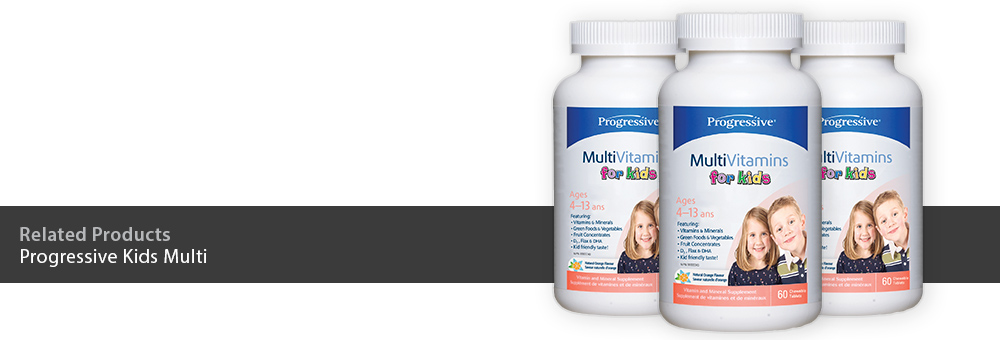

Immune Support A, B, Cs
Kids practice lots of important life skills at school, and one they seem to excel at is sharing – especially when it comes to colds and flu. Your darling elementary student is likely to share between 6-8 sicknesses this year, and your teen will bring home about half that. Along with adequate hand-washing throughout the day, tried and true methods to protect against germs taking over your family include the right balance of physical activity and sleep coupled with a vitamin and mineral rich diet. But sometimes your child needs a little extra help to resist the latest bug visiting the classroom. This quick tutorial will help you support your child’s immune system as they head back to school.
Immune Support A, B, Cs
| Nutrient | Immune System Function | Benefits |
| Vitamin A |
Supports mucosal immune system; role in antibody response |
Deficiency linked with risk of pathogens, particularly GI tract (diarrhea) |
| Vitamins B (6, 12, folate, pantothenic acid) | For antibody production; maturation of immune cells; supports immune function | For general well-being; deficiency may increase risk of infection |
| Vitamin C | Immune-stimulating; rapidly used during infection | May reduce severity and duration of symptoms |
| Vitamin D | Most immune system cells have vitamin D receptors; supports bones and teeth | Deficiency of Vitamin D predisposes children to respiratory infections |
| Vitamin E | Lipid soluble antioxidant to enhance immune response | Deficiency may trigger benign organisms to become pathogenic |
| Zinc | For antibody production; integrity of skin and mucosa | Reduces the duration and severity of cold symptoms |
| EPA and DHA |
Act as immune system “gate-keepers” |
Reduce inflammation in respiratory disorders |
Picky, picky
No-one will dispute that it’s better to get our nutrients from food, but this can become more of a challenge as we turn the corner into cooler weather and fresh produce becomes scarce. And let’s face it, the best sources of nutrients to keep us healthy are not high up on the list of favourites for most kids. (Pass the seaweed, please!) Also, there are few natural food sources of vitamin D, so most Canadians are deficient in this critical fat-soluble nutrient. What’s a concerned parent to do?
Get support
Progressive’s MultiVitamins for Kids can help. Along with a daily dose of vitamins and minerals to improve well-being, the formula provides whole food ingredients you may not easily get your offspring to eat. Picked at peak freshness and freeze-dried, plant ingredients provide a range of vitamins, minerals, co-factors and enzymes that encourage optimal use by the body. For example, broccoli, kale and spinach provide phytochemicals including beta carotene and indole-3 carbinol to support the liver. The aforementioned seaweeds (kelp, spirulina, wakame) are great sources of trace minerals. Together with fruits and other nutritious vegetables, each dose also provides 5 mg of the omega-3 fat DHA.
Best of all, Progressive’s MultiVitamins for Kids comes in a delicious chewable tablet so it won’t be a daily struggle to get them to take it. Depending on age, your child would chew one or two tablets.
Something bugging you?
Of course, there’s more to keeping your child healthy than adequate nutrition. Help your kids fortify their defences against germs and viruses with supplemental probiotics. Probiotics are our naturally-present “good” bacteria that help to block the ability of pathogens (“bad” bacteria and viruses) to get a foot-hold and make your little one sick. They antagonize pathogens by competing with them for food, by crowding them out and by creating a hostile environment through increased acidity in the gut. Unfortunately, probiotic defences are also weakened by lifestyle factors including diet, chlorinated water, medications and stress (yes, your little one has it too). Because kids are exposed to these factors daily, they need to supplement with probiotics daily, too.
Progressive’s Perfect Probiotics for Kids provides 15 billion active cells that include 12 kid-friendly strains plus prebiotics (food for the probiotics) in an unflavoured powder you can easily stir into their breakfast drink, smoothie, yogurt or applesauce. While your youngsters won’t know it’s there, you’ll know they will be getting improved digestion and intestinal health along with immune system support. As a bonus, Perfect Probiotics are DNA-tested and certified through the independent, third-party TRU-ID® certification process to ensure you get exactly what’s on the label.
Keeping your kids healthy through the school-year doesn’t have to be a test!
Did you know?
Water promotes lymph production, which helps to transport immune system cells. Send your little one to school with a thermos of water to reduce trips to the water fountain – a primary germ hang-out.


Selected references
Hageman, J.H., Hooyenga, P., Diersen-Schade, D.A., Scalabrin, D.M., Wichers, H.J., Birch, E.E. (2012). The impact of dietary long-chain polyunsaturated fatty acids on respiratory illness in infants and children. Curr Allergy Asthma Rep. Dec;12(6):564-73. doi: 10.1007/s11882-012-0304-1
Hulisz, D. (2004). Efficacy of Zinc Against Common Cold Viruses: An Overview. Journal of the American Pharmacists Association. Volume 44, Issue 5, September–October 2004, Pages 594-603
Maggini, S., Wintergerst, E., Beveridge, S., & Hornig, D. (2007). Selected vitamins and trace elements support immune function by strengthening epithelial barriers and cellular and humoral immune responses. British Journal of Nutrition, 98(S1), S29-S35. doi:10.1017/S0007114507832971
Mora, J. R., Iwata, M., & von Andrian, U. H. (2008). Vitamin effects on the immune system: vitamins A and D take centre stage. Nature reviews. Immunology, 8(9), 685–698. doi:10.1038/nri2378